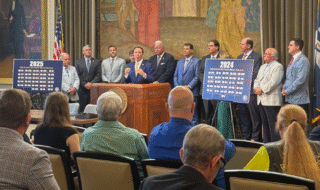New H-2A Rule Expands Employer Requirements
New H-2A Rule Expands Employer Requirements
May 30, 2024
New H-2A Rule Expands Employer Requirements
Overview of New Requirements
The rule adds significant new requirements and restrictions on employers. First, it provides workers with the right to not have their passport confiscated or held by the employer without voluntary, unprompted consent. Second, it requires employers to maintain seatbelts in working order. Even more problematic for employers, the rule includes concerted activity protections; a more difficult process to terminate an employee for cause; changes to the effective date of pay updates; an obligation to provide information about overtime to prospective employees; additional employer obligations if the start date is delayed; and restrictions on an employer’s ability to make side agreements with employees.Concerted Activities
DOL, consistent with the Biden administration’s efforts to increase union membership, has used the rule to advance workers’ engagement in concerted activities. These activities include workers bringing shared complaints to management or an enforcement agency. The rule explains that workers can engage in these activities when they are on lunch breaks, rest breaks, while riding as passengers in a vehicle between worksites, and during any non-compensable time. The rule further permits H-2A workers to invite a representative to attend any investigatory interview that the worker believes may result in disciplinary action, and gives union representatives limited access to the worker’s employer-provided housing. The rule also outlines other protected activities, including:- Filing a complaint or instituting a proceeding about any matter involving the H-2A program;
- Testifying in any such proceedings;
- Consulting with an attorney or legal assistance program about H-2A protections;
- Consulting with a key service provider about any matter involving the H-2A program;
- Exercising or asserting, on behalf of themselves or others, any H-2A right or protection; and
- Filing a complaint, instituting a proceeding, or testifying or assisting in an investigation, proceeding or hearing under any applicable Federal, State, or local law or regulation, including safety and health, employment, or labor laws.
Termination for Cause
The rule makes it more difficult to terminate a worker for cause. Now a worker may not be terminated for cause unless they failed to comply with policies or failed to perform satisfactorily in their duties in accordance with reasonable expectations. The rule outlines five conditions that must be met to ensure a termination or disciplinary action was reasonable:- The worker was informed in a language understood by the worker, of policies, rules, and performance expectations;
- Compliance with these rules and expectations is within the worker’s control;
- The rules and policies are applied consistently to H-2A workers;
- The employer undertook a fair and thorough investigation into the job performance or misconduct; and
- The employer corrected the worker’s performance or behavior by attempt of continuous discipline.
Effective Date of Pay
The rule also makes changes to the effective date of pay updates for H-2A workers. Adverse Effect Wage Rates (AEWRs) are the minimum hourly wage rates that must be offered and paid by employers to workers employed under the H-2A program. They are adjusted annually, but traditionally the effective date is delayed. However, under this rule, the effective date of AEWR pay adjustments is the date of publication in the Federal Register. You can read more about your AEWR obligations here.Overtime Disclosures
Under the new rule, employers must also disclose in the job description if they are legally required to pay an overtime rate and provide additional information about overtime hours. Employer Obligations Due to Delayed Start DatesDelayed Start Dates
If the start date for H-2A workers is delayed for up to 14 calendar days due to unforeseen circumstances, the employer must notify the State Workforce Agency (SWA), and each worker, at least 10 days before the original start date. Failure to properly notify could require the employer to compensate the worker at the required rate included in the job order for each hour of the offered work schedule for up to 14 days. More about this obligation can be found here. Employers should contact workers in writing and keep a record of the notification. Workers not properly notified will be entitled to compensation no later than the first day work would have initially proceeded.Side Agreements Prohibited
Employers may not ask workers employed under H-2A to sign any side agreements relating to their rights in the program. This includes, but is not limited to, arbitration agreements, forms that waive terms and conditions of employment, and more. **DOL Webinar** If you are an H-2A employer, you should familiarize yourself with the new Farmworker Protections Rule. DOL will be hosting a webinar on June 6, 2024, from 1:00-2:30 p.m. You can learn more and register for the webinar here. In the meantime, you can check out DOL’s Employer’s Guide to the Farmworker Protection Rule, for more information.
Get to know NFIB
NFIB is a member-driven organization advocating on behalf of small and independent businesses nationwide.
Related Articles

June 30, 2025
Get Tips on Website ADA Compliance on the Small Business Rundow…
The Small Business Rundown talks website ADA compliance, the Small Business…
Read More


June 30, 2025
NFIB Survey Sheds Light on New Technologies for Small Business
NFIB’s Small Business and Technology Survey shows how small businesses ar…
Read More


June 30, 2025
Small Businesses Pick Up Promising Wins in U.S. Supreme Court�…
The Supreme Court’s 2024-2025 term was a relatively quiet one for small b…
Read More


June 30, 2025
Governor Signs Last of NFIB-Supported Bills to Reduce Insurance…
The measures are aimed at stopping lawsuit abuse.
Read More








